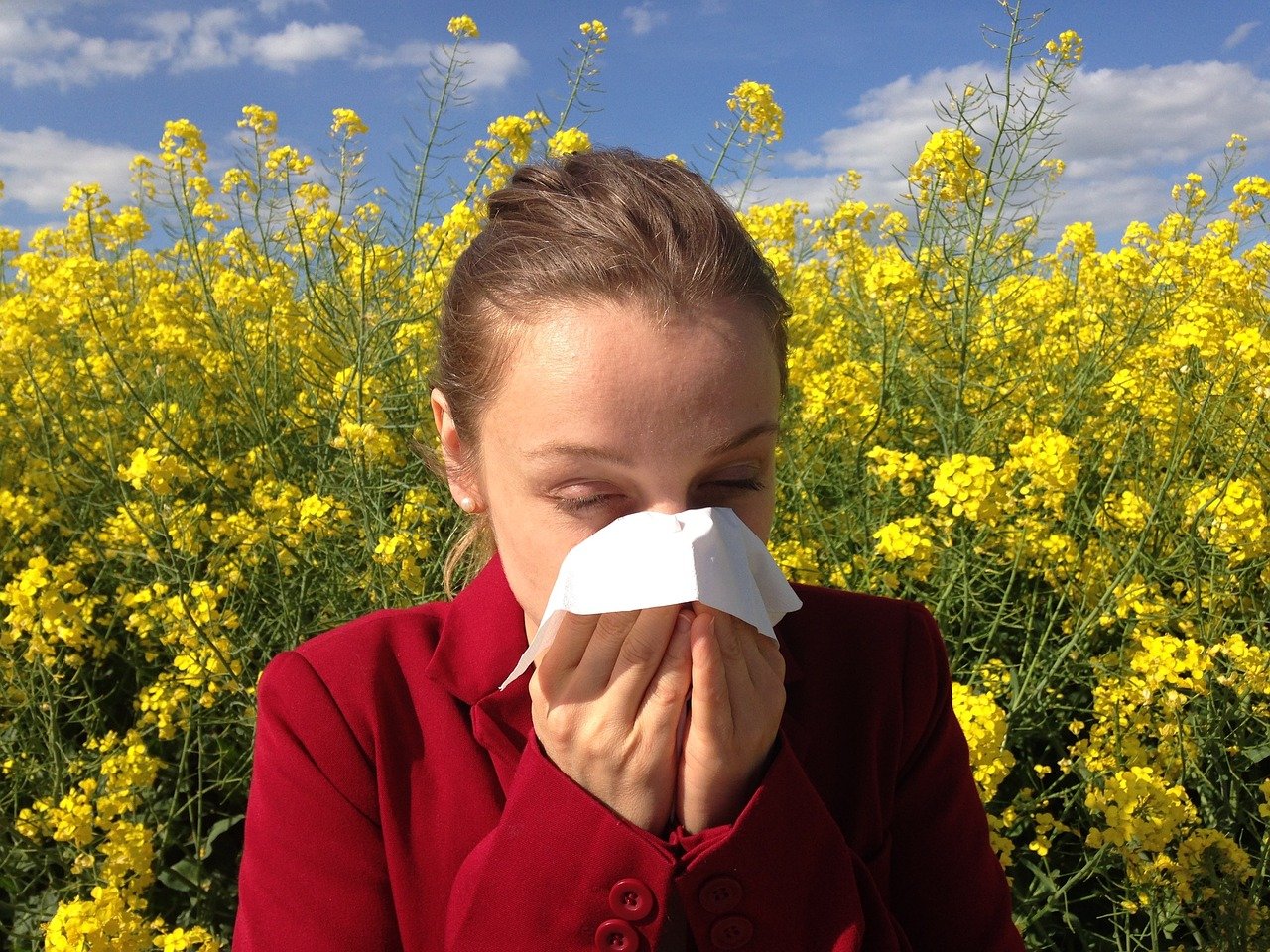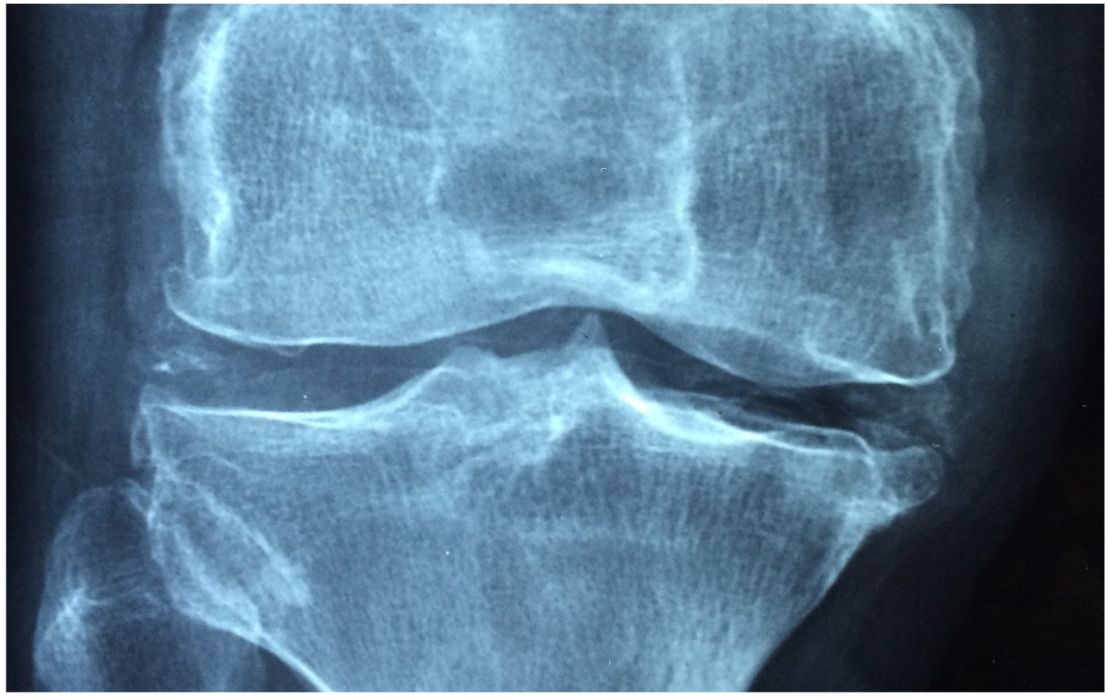If you sometimes think there’s too much medical information floating around the universe, you’re not alone. Between the medical and pharmaceutical communities, you’re asked to believe that your only hope for getting well is via surgery or drugs that may or may not be compatible with your system.
But the following information can change forever the way you deal with your allergic rhinitis diagnosis. Keep reading to learn about safe, sane and sensible ways to relieve your symptoms without putting your body at risk by flooding it with pharmaceuticals.
Those manufactured drugs can weaken your immune system and burden you with unpleasant side effects, leaving your body vulnerable for more than allergic rhinitis.
What is Allergic Rhinitis?
You don’t need a medical degree to know when your respiratory system is taxed. Your eyes water. Your lungs act as hosts to phlegm. Your nasal passages?
These drainage ports make leaving a box of tissues behind a very unwise move! There is one nugget of good news if you’re diagnosed with allergic rhinitis: it’s not non-allergic rhinitis, a condition caused by an acute viral infection.
That’s doesn’t mean that allergic rhinitis is a benign condition. In fact, it’s a trickster: your symptoms may be seasonal, occupational or perennial, which is why you don’t stay in a constant state of misery 365 days out of the year.
This condition was brought to the medical community’s attention around 1998, according to Dr. David M. Quillen and Dr. David B. Feller, experts in this field and contributors to the American Family Physician journal.
That was the year doctors first acknowledged the difference between the allergic and non-allergic types.
Do You Have Allergic Rhinitis Symptoms?
These experts explain that, in layman’s terms, “rhinitis is an inflammation of the nasal mucosa,” which triggers mucus production, sneezing, nasal irritation, watery eyes, congestion and ocular pruritus (that awful feeling in your eyes that may present as itching, inflammation and/or pain).
But that’s not all you’ll experience if your allergic rhinitis is “in full bloom.” You may also suffer fatigue and headaches because, in addition to being a pain in the neck, allergic rhinitis is a systemic illness.
So, every part of your body can suffer — especially if your system is vulnerable to infection, or if you have a compromised immune system. Like all ailments, there’s no “one size fits all” category for allergic rhinitis victims.
However, every allergic rhinitis treatment in this article could alleviate some or all of this condition’s symptoms. So you have nothing to lose and everything to gain by trying out one or more of them.
Can You Avoid Contracting Allergic Rhinitis?
Easier said than done. The World Health Organization (WHO) has explored this conundrum for years.Its researchers have had multiple starts and stops, declaring certain triggers the sole cause of seasonal allergic rhinitis, until that theory was proven incorrect. For example, pollens and molds were thought to be the sole seasonal cause of allergic rhinitis, until clinical trials in Florida and California led WHO to reverse their findings.
These days, the scientific community agrees allergic rhinitis can be categorized into three distinct sub-groups: occupational, perennial and seasonal. You always can change jobs if your diagnosis points to an occupational cause, but if you suffer from one of the two seasonal types, your only recourse is leaving planet Earth.
Trees, grass and weed pollens are major culprits for people suffering from seasonal AR. Mold spores can be both seasonal and perennial and many cases of allergic rhinitis can be traced to pet dander.
Dust mites also have been identified as triggers, while some folks’ conditions are caused by cold air, tobacco smoke, hairspray, pollen, coffee beans and wood dust.As you can see, relocation to Mars may seem your only solution. Yet, before you pack, remember that researchers constantly are making inroads.
So don’t give up, especially since home remedies for allergies have become such popular ways to deal with symptoms.
Medical Solution for Allergic Rhinitis
It took time for the National Institutes of Health (NIH) to admit that not every disease or condition requires pharmaceutical and medical intervention. That’s why the National Center for Complementary and Integrated Health was established.
This agency concerns itself with homeopathic medicines, theories, applications and protocols to help consumers learn about alternatives to the most-often used drugs for allergic rhinitis.
These include the following:
- Fexofenadine (Allegra and others)
- Diphenhydramine (Benadryl and others)
- Desloratadine (Clarinex and others)
- Loratadine (Claritine and others)
- Levocetirizine (Xyzal and others)
- Cetirizine (Zyrtec and others)
- Oxymetazoline (Afrin and others)
- Pseudoephedrine (Sudafed)
- Phenylephrine (Sudafed PE)
- cetirizine with pseudoephedrine (Zrtec-D)
Natural Remedies for Allergic Rhinitis
And some folks suffer from serious ailments that can be exacerbated by pharmaceuticals.
So, whether you’re eager to avoid adverse side effects or potential interactions from meds prescribed for major health issues, you lose nothing by exploring home remedies.
One of the following home remedies for allergies may be exactly what you seek, but it can’t hurt to try multiple solutions since they’re all considered safe.
Upgrade Your Vacuum Filter
When you consider allergic rhinitis treatment options, this one could be the easiest of all: buy a new vacuum with a high-efficiency particulate air filter (HEPA) that features a dust collection canister so you don’t have to deal with bags filled with allergy-provoking debris.
Want to go the extra mile? Get rid of carpeting so you can wet-mop floors to short-circuit your chances of experiencing an allergic reaction.
Invest in a Dehumidifier
This is especially important if you live in an area where things tend to stay wet, sticky and humid. A whole-house dehumidifier that uses your heating and cooling system’s compressor to suck up moisture is ideal, but plenty of smaller units won’t require you to empty your wallet.
Dehumidifiers are efficient and useful — as long as you keep them clean. Mold or mildew can build up in units not properly cared for. So, you could trade one AR trigger for another if you neglect regular maintenance.
Find a New Home for Your Pets
Yes, this can be heartbreaking, which is why so many animal lovers stick with their cats and dogs even when their “kids” are keeping them sick.
Did you know some dogs are specially bred for people with allergies? An impressive list of breeds can be found at Dog Breed Info Center. Hairless cats also may be an answer for you.
Turn Up Your Water Heater’s Thermostat
It should be set at least 130 degrees F (54 degrees C). Consistently wash all of your linens in water heated to this temperature and you’ll never have to deal with tenacious dust mites that trigger AR symptoms.
Further, cut down on the number of attacks you experience by changing and washing garments after you’ve been exposed to pollen, particulates, smoke and other outdoor allergens.
Even changing weather patterns can prompt allergic reactions.
Have Furnace Filters Replaced
Ask your HVAC professional to make sure you have the most efficient and effective filters mounted on your furnace system so when environmental triggers are generated you can close your windows and breath in the filtered air. Frequent filter changing has saved many an allergic rhinitis sufferer pain and misery.
Innovative new filters are being tested and developed by manufacturers. So keep tabs on the furnace filter industry for news in the years ahead.
Explore Acupuncture
You may have to search outside your community to find an acupuncturist, but even the National Institutes of Health says acupuncture may be an ideal remedy for escaping allergic rhinitis’s worst symptoms.
Plenty of allergic rhinitis patients swear by this ancient Chinese practice and many pairs their treatments with Chinese herbal medicines for more relief.
Avoid Your Garden when It Blooms
It’s no fun to look out at all of that lush yard work — perfectly trimmed trees, shrubs, and floral wonders — knowing that even short-term exposure could make you sick.
Hiring a gardener to take care of your yard during the months when bees are collecting pollen and every weed has the potential to make you suffer just makes good sense.
At the very least, get a local kid to cut the grass.
Hire a Professional Home Inspector
He or she can ensure your allergic rhinitis isn’t being exacerbated by mold and mildew collected in the darkest recesses of your home.
It’s well worth the one-time inspection fee. Once you’ve made sure there’s no contamination — or after having contaminated areas professionally cleaned to remove grime and spores — find a homeopathic cleaning agent and schedule more frequent bathroom cleanings to prevent future growth.
Prohibit Smoking in Your Home
Don’t let smokers compromise the air in your home for a host of reasons.
If you’re looking for an excuse to banish them to the furthest reaches of your yard, explain your allergic rhinitis diagnosis and advise offenders than a single cigarette could make you sick. Oh, and no garage smoking, please! Smoke can infiltrate your living space from there.
All it may take to trigger AR symptoms are a few breaths of this toxic air.
Try Nasal Irrigation
Treat your nasal passages to a salt water irrigation treatment. Add a teaspoon of salt and a pinch of baking soda to two cups of warm distilled water.
Use a nasal bulb (if you luck out in the pharmacy, check baby supplies) to snort small amounts into one nostril. Allow it to flow into the other nostril by tilting your head, then repeat with the other nostril.
Will you feel silly? It takes practice. Sure, you can buy a saline solution but remember, you’re seeking home remedies!
Chew Fresh Garlic
If you don’t think about your favorite Italian restaurant when you adopt this garlic-based solution to your allergic rhinitis, it’s probably because your nose has been out of whack too long. Peel and chew two to three raw garlic cloves daily.
When you cook, use garlic so you get as much into your system as you can tolerate. Garlic is an antihistamine, boosts your immune system and also has antibacterial, antiviral and antibiotic properties.
When you shop for garlic buy lots of fresh parsley. It will do wonders for your breath.
Sip Stinging Nettle Tea
Adults suffering from allergic rhinitis can benefit from drinking tea made from stinging nettle herbs. This botanical is an antihistamine and anti-inflammatory.
Those who have experienced relief from this simple home remedy have described it as a miracle cure. You can buy dried stinging nettle at a health food store.
Boil one cup of water, add a teaspoon of herbs and steep for five minutes. Filter out the herbs, add some honey and drink several times a day.
This alternative medicine isn’t safe for kids or pregnant women.
Try a Steam Tent
Yoga class isn’t the only place you’ll be asked to breathe deeply if you try steam inhalation to combat your allergic rhinitis.
Pour boiling water into a bowl and add two or three drops of your favorite essential oil (tea tree, rosemary, peppermint, and eucalyptus are recommended). Use a towel to make a tent over your head and lower your face so it hovers above the bowl.
Allow the steam to do its thing as your sinuses drain. Stay under your tent for up to 10 minutes and then blow your nose.
This home remedy is so safe, you can steam several times a day for relief.
Boost Your Vitamin C Intake
If you rely upon vitamin therapy to keep other conditions at bay, nothing compares to upping your vitamin C intake to help relieve allergic rhinitis attacks.
This awesome immune system booster is fine as a daily supplement, but filling your diet with “colorful” fruits and veggies is one of the best and easiest ways to follow a home remedy regimen.
Yes, plenty of vitamin C rich foods don’t come in bold colors, but it’s so much easier to remember that the darker the color, the more your body heals when AR symptoms pop up.
Eliminate Dairy Foods and Beverages from Your Diet
Get rid of milk, cheese and ice cream so you’re not tempted to “raid the fridge” at night because consuming dairy products can add to your misery. Additionally, both caffeine and alcohol are notorious AR symptom generators. So even if you can’t give either up, practice moderation. Load up on complex carbs to help heal your system.
Why not use your allergic rhinitis as an excuse to try the Paleo diet?
Discover the Ginger Cure
What comes to mind when you see the word “ginger?” Morris the cat? Ginger Rogers films your folks dragged you to as a kid? Neither can help you deal with allergic rhinitis (the cat could make things worse), but the ginger root is a favorite home remedy for those with AR.
So add it to your bag of tricks. Ginger root has been an Asian medicine staple for centuries. Achieve maximum healing by chewing pieces of ginger several times a day and drinking ginger tea (one teaspoon grated ginger, a few cloves and a cinnamon stick boiled for five minutes).
Add ginger to recipes to activate its antiviral, anti-inflammatory and immune-boosting properties.
Make Vinegar Your New BFF
It’s hard to imagine a fluid that’s as versatile and inexpensive as vinegar.
It makes the perfect cleaning agent, can keep drains pristine when mixed with baking soda and since vinegar — specifically apple cider vinegar — packs an antibiotic and antihistamine wallop, it is the home remedy of choice for budget-conscious people.
Add two teaspoons of organic apple cider vinegar and a teaspoon each of honey and lemon juice to a glass of warm water. Drink this soothing tonic three times a day until your symptoms subside.
Try Probiotics
The word probiotics has become a buzzword in today’s society, most often referring to the legion of yogurts and other dairy foods made by fermenting cultures.
Technically, prebiotics feed probiotics, so when combined they form the appropriate compound, synbiotics, explains Mayo Clinic Dietician Katherine Zeratsky.
Of course, you probably don’t care about semantics if you find relief.
Yet folks with AR who suffer from congestion, mucus, and phlegm, often opt for non-dairy supplements so they don’t trade one allergy-related complaint about another.
Make a Turmeric Tonic
You would be hard-pressed to find a spice as internationally beloved as turmeric. This anti-oxidant and anti-inflammatory can relieve symptoms such as sneezing, congestion, and coughing. So, get out your international cookbook and treat the family to Tandoori chicken or veggie dishes. Not a fan of curry? No worries.
Make a tonic of six tablespoons each of turmeric powder and raw honey dissolved in warm water and store it in an airtight container.
Take a teaspoon twice daily to alleviate symptoms.
Sip Flaxseed Oil
If you are convinced of the power of flaxseed oil, you may be aware of research conducted by the University of Maryland Medical Center into its cholesterol reduction, heart health and menopause symptom reduction properties.
Scientists agree that this oil also can be instrumental in treating allergic rhinitis. There is no recommended dosage, so ask your doctor or a dietician for advice. Dosage is best determined by considering a number of fatty acids you consume daily.
Available in liquid and capsule form, flaxseed oil must be refrigerated so it doesn’t turn rancid.
Swish with Essential Oils
Ever heard of the art of oil pulling? It’s an Ayurvedic technique that involves swishing a tablespoon of either sesame oil or coconut oil around your mouth in the same way you use a dental rinse.
But this is no fast swish and spit exercise. To treat allergic rhinitis, you must swish either oil for 15 or 20 minutes before spitting it out and rinse with warm water. If there’s a chance the taste of either oil is so offensive it won’t work for you, simply take this option off your remedy list.
If you can tolerate it, never swallow as these oils are toxic.
Slipcover Furnishings
Because our grandparents bought furniture for a lifetime, many of them covered upholstery with plastic slipcovers so couches and chairs literally lasted decades without a blemish.
Apply this principle to your home to alleviate allergic rhinitis symptoms — but don’t worry about uncomfortable plastic slipcovers.
Decorative slipcovers that can be frequently washed and dried are available in all styles and colors, along with dust mite-repelling mattresses, pillows and other slipcovers designed to prevent exposure to allergens.
Remember to keep your hot water heater set to at least 130 degrees F (54 degrees C).
Wear Face Masks
People in Asia are exposed to so many pollutants that many won’t leave home without donning a face mask.
If you’d like to limit your exposure to the dust, pollution and airborne irritants that trigger or exacerbate your allergic rhinitis symptoms, you won’t find a cheaper home remedy that disposable face masks; especially if you buy them in bulk.
Available from myriad online and local resources, place a box of these next to your front door and put one on when the weatherman warns of high particulate and ozone levels.
Stay Hydrated
Some call it the ultimate natural remedy for AR because it’s free and it’s everywhere — water. Keeping the body hydrated helps you fight off allergic rhinitis assaults. You don’t have to be a marathon runner to understand that hydration can mean the difference between life and death.
Water makes up half of every person’s body weight. So, if you allow yourself to become dehydrated, your opportunistic allergic rhinitis is likely to kick in.
Staying hydrated costs nothing, yet it can reduce your chances of triggering AR symptoms big time.
Stay in the Loop
New homeopathic treatments, medicines, and techniques are introduced frequently, but if you don’t keep up with late-breaking news from relevant resources devoted to promoting home remedies for AR, you won’t find out about these breakthroughs.
Pick resources you can trust. Bookmark the Asthma and Allergy Foundation of America, which has been around forever.
Also, bookmark Naturopathic Physicians and the Alternative Medicine Foundation to stay in the loop until a cure for allergic rhinitis is found.
Conclusion
Just 25 home remedies? No worries.
As allergy sufferers grow disenchanted with pharmaceutical and medical solutions that don’t always benefit folks diagnosed with allergic rhinitis, turning to natural remedies for allergies already has become a habit for those who trust Mother Nature to deliver assistance fighting the symptoms and misery that stalks those diagnosed with AR.
For that reason, the growing body of information on natural remedies for allergies has become expansive and impressive over time.
So, if you stay up-to-date on home remedies for AR, you’ll be at the forefront of innovative new thinking. You’ll realize solutions for allergic rhinitis don’t require surgery or drugs. For allergic rhinitis sufferers who must contend with even more pronounced symptoms as they age, employing a variety of these tips just makes good sense.
Keep those that work and discard the ones that don’t. You always can revisit a home remedy at a later date if at first, it doesn’t work for you. But perhaps that’s what you should remember most about this list: nothing on it will harm you.
That’s the beauty of home remedies!









